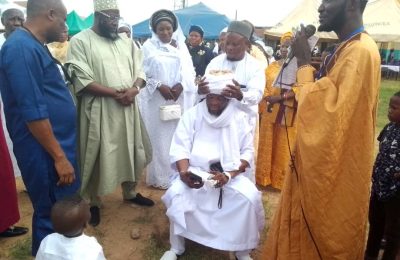THE South African authorities must put in place public educational programs that challenge and reason the public out of witchcraft beliefs. This has become necessary following the reported arrest, prosecution, and conviction of some persons linked to the attack and murder of some alleged witches in the country. The belief that some persons can harm others and cause diseases and death through magical means is pervasive in South Africa. This belief motivates people to attack and kill those so suspected, most often old women. In July, a high court sentenced seven persons to life. The court convicted them for lynching two sisters, Nothethisa Ntshamba and Ntombekhaya Ndlanya accused of witchcraft. As reported in the local media, “Lwandiso Mzaza (29), Lufefe Mzaza (28), Yamkela Nonjojo (31), Odwa Nonjojo (34), Anelisiwe Nonjojo (32), Zithini Rhayisa (34) and Mkhonzeni Ngcabangcosi (24) were handed their sentence on 12 July, 2024. The seven reportedly bought petrol in December 2018 and plotted to kill those they suspected of being witches. According to TimesLIVE, the group confronted the sisters and stoned them before dousing them with the fuel and setting them alight. The group then reportedly burnt down Ntshamba’s home in the Ngonyama Administrative Area in the EmaXesibeni District”.
In a related development, the police have arrested seven persons for killing an old woman, accused of witchcraft. As reported, these persons, killed the woman “on 22 October 2024 after accusing her of being behind the murder of a 13-year-old teenager. The teenager disappeared, and her body was later discovered. Members of the community linked her murder to witchcraft and singled the elderly woman out”. As in the earlier case, the suspects, scheduled to appear in court on October 28, were below the age of 45. I commend the South African authorities for arresting and prosecuting suspected witch hunters in the country. To end witch persecution, witch hunters must not be allowed to get away with their crimes. Impunity must end. Authorities must bring perpetrators to justice. Penalising those who attack and murder suspected witches would help restrain others from indulging in these violent acts. However, South African authorities must realise that the prosecution of attackers and killers of suspected witches is not enough. Allegations of witchcraft are rooted in beliefs and indoctrination, in the socialisation and education of children and youths. So, it is necessary to provide educational responses to the menace of witch-hunting and complement prosecution and law enforcement with enlightenment programs. As the cases have shown, those who indulge in attacks and killings of suspected witches are mainly youths, persons who are below the age of 45. Thus, it is imperative to look hard at youth education and upbringing in South Africa.
The authorities should review the syllabus and introduce programs that foster critical and scientific thinking; they should introduce lessons and other learning materials that motivate students to challenge and interrogate witchcraft beliefs and other superstitions. Educational responses should not be restricted to schools, colleges and universities because many people are shaped and influenced by the orientations they receive in their families and communities. So, public enlightenment programs should be staged in communities to get people to know that allegations of witchcraft have no basis in reason, science, or reality. That there is no evidence for harmful magic as popularly believed. The public, young and old, should be told in clear terms that witchcraft accusations are false accusations. And those who make such allegations are liable. People should be told that nobody has the power, the magical power, to disappear, make sick, and kill other human beings. With effective educational measures complementing law enforcement, South Africa and other African countries would end witch-hunting in the region.

Read Also: Dualisation of Kuje township road will boost economic activities – Wike







